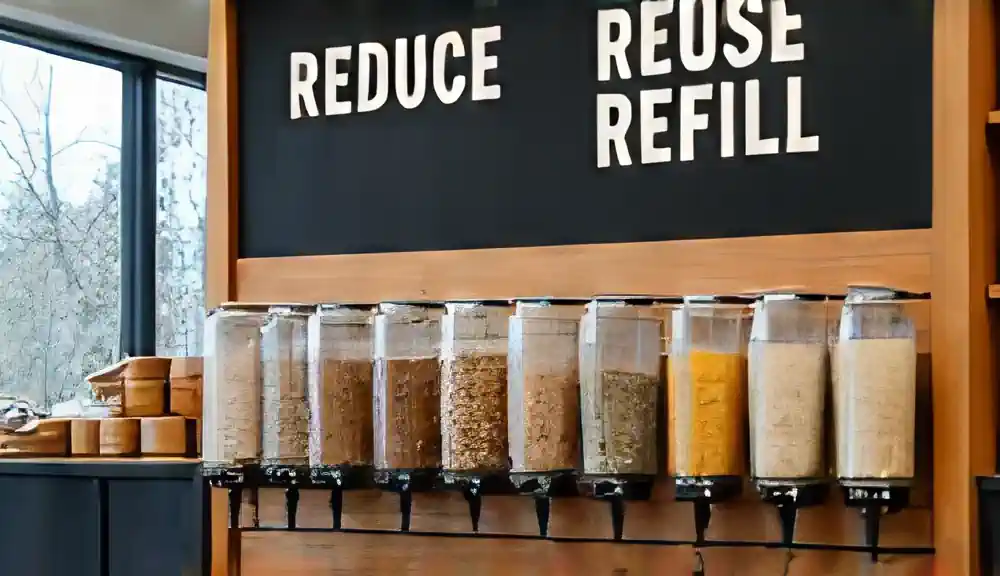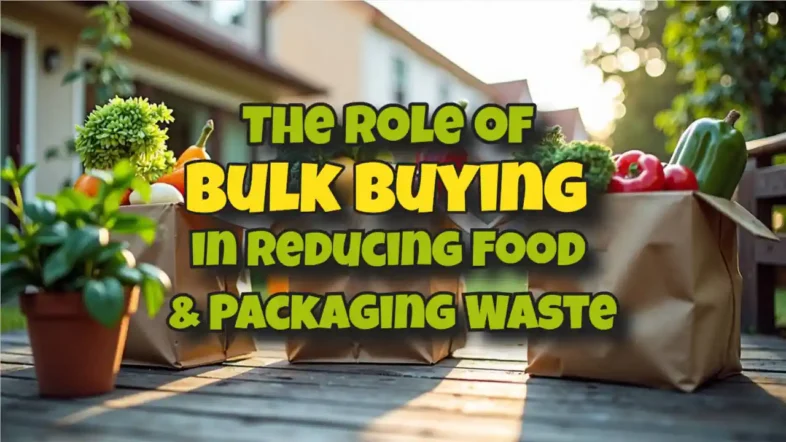How to Cut Down on Food and Packaging Waste by Buying in Bulk
Food waste and excessive packaging contribute to environmental harm and economic inefficiencies. Bulk buying has emerged as a powerful strategy as consumers and businesses look for ways to minimize their impact. Individuals and organizations can reduce waste, save money, and make more sustainable choices by purchasing larger quantities of food and household items.

Reducing Food Waste Through Bulk Buying
Food waste is a significant global issue, with millions of tons discarded each year. Much of this waste comes from spoilage, over-purchasing, and improper storage. Bulk buying helps mitigate these problems in several ways:
- Better Inventory Management: Households and businesses that buy in bulk tend to plan meals and consumption more effectively, reducing the likelihood of expired food.
- Fewer Trips to the Store: Frequent grocery shopping increases impulse purchases, leading to wasted perishables. Bulk buying encourages thoughtful planning, ensuring food is used efficiently.
- Longer Shelf Life Options: Many bulk products, such as grains, pasta, and dried goods, have extended shelf lives, reducing the risk of spoilage compared to fresh items purchased in small quantities.
When done correctly, bulk purchasing minimizes unnecessary waste, particularly for businesses like restaurants, catering services, and food pantries that require large quantities of staple items.
Cutting Down on Packaging Waste
Packaging waste, especially from single-use plastics, is a growing environmental concern. Traditional retail shopping often results in excessive packaging, from individually wrapped items to plastic bags and disposable containers. Buying in bulk significantly reduces packaging waste in several ways:
- Less Individual Wrapping: Bulk products often come in larger, single containers rather than multiple smaller packages, leading to less plastic and cardboard waste.
- Refillable and Reusable Containers: Many bulk stores allow customers to bring their own containers, further cutting down on disposable packaging.
- Lower Carbon Footprint: Producing, transporting, and disposing of excess packaging consumes energy and resources. Bulk buying reduces this demand, making supply chains more sustainable.
By choosing bulk options, both consumers and businesses play an essential role in minimizing environmental impact while also reducing costs.

Economic and Environmental Benefits
Beyond reducing waste, bulk buying offers financial advantages. Purchasing larger quantities often results in lower per-unit costs, helping households and businesses save money. Additionally, bulk purchasing reduces transportation emissions by decreasing the frequency of deliveries and shopping trips.
For those looking to buy wholesale in the UK, wholesale suppliers provide access to a wide range of products at competitive prices. Whether for personal use, retail, or hospitality, sourcing goods in bulk supports sustainability while keeping expenses low.
Making Bulk Buying Work for You
To maximize the benefits of bulk buying while reducing food and packaging waste:
- Plan your purchases according to your consumption habits to avoid overbuying.
- Store food properly to extend its shelf life and reduce spoilage.
- Choose products with minimal or recyclable packaging to further decrease waste.
- Partner with local businesses or cooperatives to share bulk purchases and lower costs.
As more individuals and businesses embrace bulk purchasing, they contribute to a more sustainable future by minimizing food waste, reducing packaging pollution, and lowering overall environmental impact.






